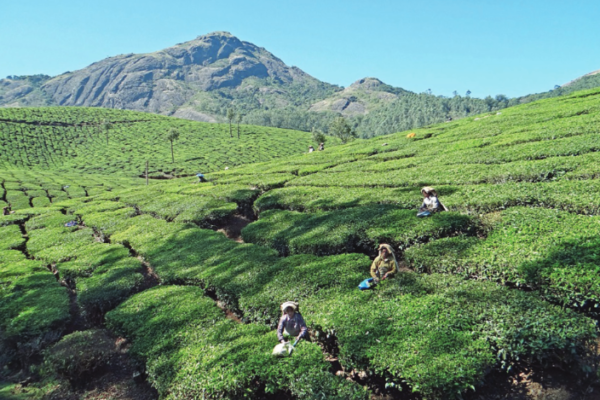Amid concerns over declining tea exports, particularly to key markets like Iran, India is taking proactive measures to address the challenges and explore new opportunities in the global tea trade. Teams comprising industry representatives and government officials are being dispatched to various countries to assess the situation and devise strategies to revive tea exports.
One of the primary destinations for these trade delegations is Iran, where India’s tea exports have witnessed a significant downturn in recent years. Official data from the commerce ministry reveals that India exported tea worth $673 million between April 2023 and January 2024, down from $702 million in the previous year. Notably, India’s tea shipments to Iran have plummeted from 54.45 million kg in 2019 to approximately 5.16 million kg in the first eleven months of 2023. This sharp decline is attributed to the payment crisis triggered by western sanctions imposed on Iran.
The diminishing share of Indian tea in the Iranian market is a cause for concern, with India’s market share dropping from 21% in 2019 to a mere 2.5% in 2023. To address this issue, the commerce ministry, in collaboration with the Tea Board, is organizing trade delegations to Iran. These delegations aim to engage with stakeholders in the Iranian tea market and explore ways to enhance bilateral trade relations.
The Tea Board, which operates under the purview of the commerce ministry, acknowledges the significance of Iran as a crucial export market for Indian tea. It emphasizes the need for timely interactions and discussions between Indian exporters and their Iranian counterparts to maximize trade opportunities. The department of commerce plays a pivotal role in facilitating such initiatives aimed at promoting Indian exports, including tea, on the global stage.
While efforts are underway to rejuvenate exports to traditional markets like Iran, India is also exploring new destinations to diversify its tea trade. The West Asia North Africa (WANA) region and European countries have emerged as potential markets for Indian tea exporters. Additionally, India has initiated tea exports to countries like Iraq and Turkey, tapping into previously untapped markets.
Despite these endeavors, challenges persist in the global tea trade landscape. Shipping disruptions, payment hurdles, and internal issues within importing countries have contributed to the decline in tea exports from India. For instance, Iran’s decision to suspend most tea imports following a major embezzlement scandal has severely impacted trade relations between the two countries. Moreover, sanctions imposed by the US and EU have further complicated financial transactions, hindering tea trade with Iran.
The decline in tea exports is not limited to Iran alone but extends to other major markets as well. India has witnessed a significant drop in tea exports to countries like Russia, the USA, the UK, and the UAE. Factors such as geopolitical tensions, economic instability, and changing consumer preferences have influenced trade dynamics, posing challenges for Indian tea exporters.
To address these challenges and capitalize on emerging opportunities, India’s tea industry must adopt a multi-faceted approach. This includes enhancing product quality, diversifying export destinations, streamlining trade procedures, and fostering stronger bilateral ties with importing countries. Moreover, investment in research and development, marketing initiatives, and infrastructure development is essential to sustain long-term growth in the tea sector.
India’s efforts to revive tea exports amidst a challenging global landscape reflect its commitment to promoting trade and economic growth. By leveraging trade delegations, fostering collaboration between industry stakeholders, and exploring new markets, India aims to bolster its position as a leading player in the global tea trade. However, addressing underlying issues and adapting to evolving market dynamics will be crucial in achieving sustainable growth and maintaining India’s competitiveness in the international tea market.














